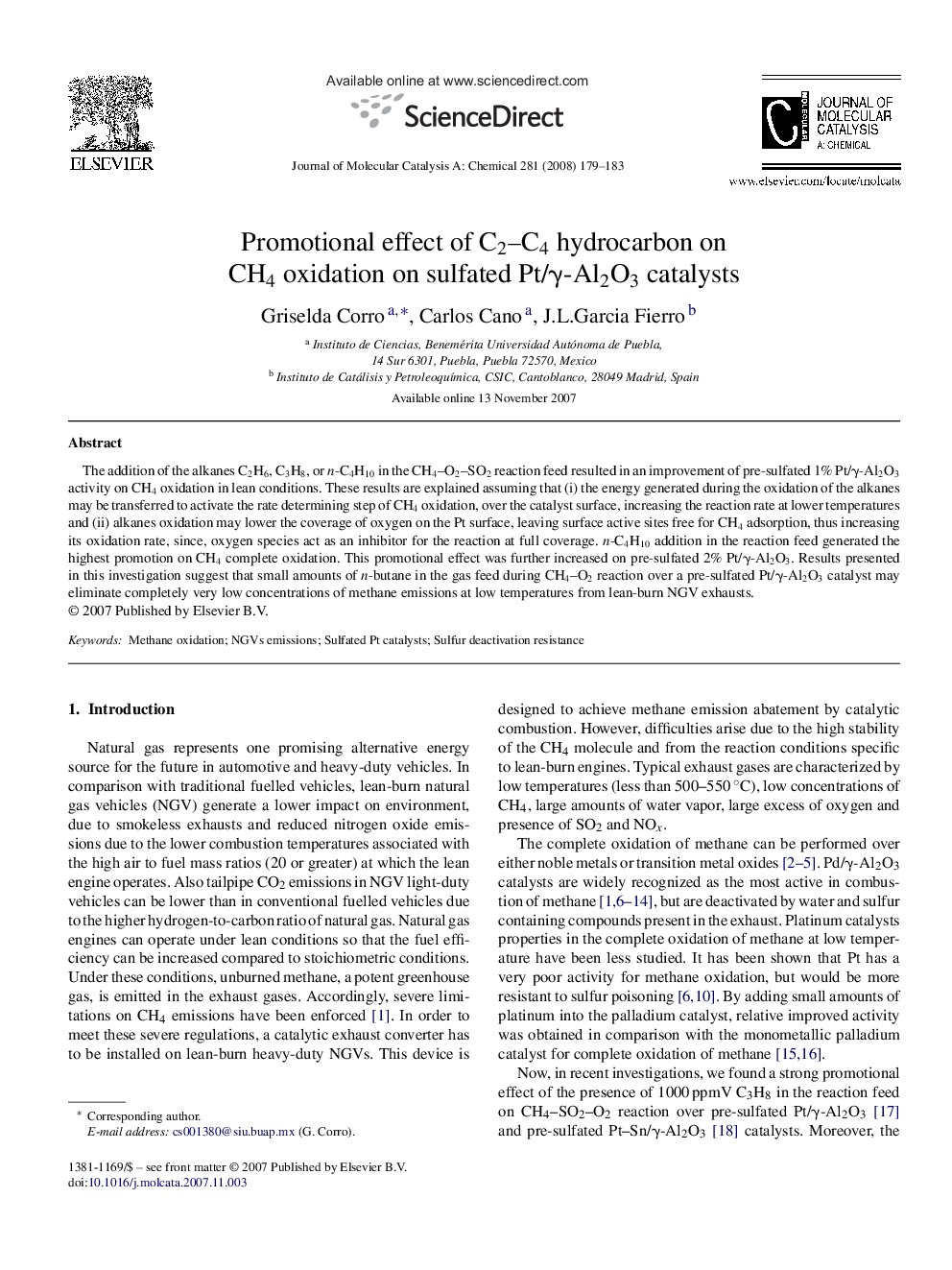| Article ID | Journal | Published Year | Pages | File Type |
|---|---|---|---|---|
| 68197 | Journal of Molecular Catalysis A: Chemical | 2008 | 5 Pages |
The addition of the alkanes C2H6, C3H8, or n-C4H10 in the CH4–O2–SO2 reaction feed resulted in an improvement of pre-sulfated 1% Pt/γ-Al2O3 activity on CH4 oxidation in lean conditions. These results are explained assuming that (i) the energy generated during the oxidation of the alkanes may be transferred to activate the rate determining step of CH4 oxidation, over the catalyst surface, increasing the reaction rate at lower temperatures and (ii) alkanes oxidation may lower the coverage of oxygen on the Pt surface, leaving surface active sites free for CH4 adsorption, thus increasing its oxidation rate, since, oxygen species act as an inhibitor for the reaction at full coverage. n-C4H10 addition in the reaction feed generated the highest promotion on CH4 complete oxidation. This promotional effect was further increased on pre-sulfated 2% Pt/γ-Al2O3. Results presented in this investigation suggest that small amounts of n-butane in the gas feed during CH4–O2 reaction over a pre-sulfated Pt/γ-Al2O3 catalyst may eliminate completely very low concentrations of methane emissions at low temperatures from lean-burn NGV exhausts.
Graphical abstractA very strong promotional effect of the presence of C2H6, C3H8, or n-C4H10 in the reaction feed on complete oxidation of low concentrations of methane (2000 ppmV) under lean-burn conditions and in the presence of SO2 was found over sulfated 1% Pt/γ-Al2O3 catalyst. This promotional effect was further increased on 2% Pt/γ-Al2O3. Results are explained on basis of the probability of methane adsorption on the free Pt surface active sites. This probability increases (i) as the oxygen coverage over platinum surface is lowered by C2H6, C3H8, or n-C4H10 oxidation and (ii) as the number of initial surface Pt sites increases.Figure optionsDownload full-size imageDownload as PowerPoint slide
